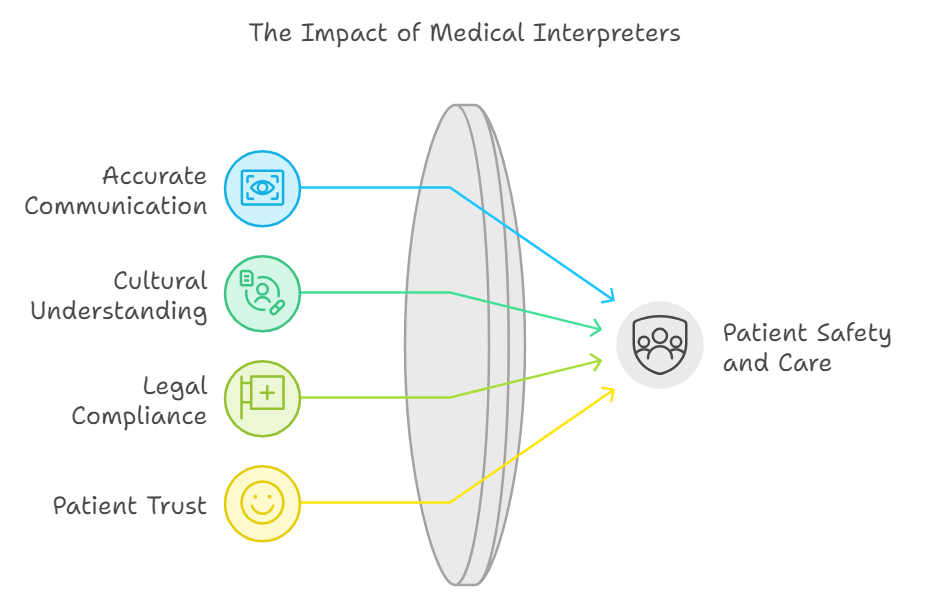The Importance of Medical Translation
in Healthcare
09
Imagine you’re sitting in a doctor’s office, anxiously waiting to discuss your recent test results. The doctor walks in and starts speaking, but you don’t understand a word. How would you feel? Confused? Scared? Helpless? This scenario is a reality for many people who face language barriers in healthcare settings. Medical translation is not just about converting words from one language to another; it’s about ensuring that patients receive accurate diagnoses and effective treatments. Let’s dive into the critical role of medical translation and the consequences of language barriers on patient health.
The Role of Medical Interpreters
Medical interpreters are the unsung heroes in healthcare settings, especially in linguistically diverse areas. They bridge the gap between patients and healthcare providers, ensuring that communication is clear and accurate. But their role goes beyond mere translation.
Why Medical Interpreters Matter
- Ensuring Accuracy: Misunderstandings in medical settings can lead to incorrect diagnoses and inappropriate treatments. Professional interpreters ensure that medical terminology is accurately conveyed.
- Cultural Mediation: They provide cultural context, helping doctors understand cultural nuances that might affect treatment.
- Improving Patient Safety: Accurate communication is crucial for patient safety. Misinterpretations can lead to medication errors, wrong procedures, and even life-threatening situations.
- Legal Compliance: Many countries have laws requiring language access services in healthcare. Interpreters help institutions comply with these regulations.

and Patient Services
Dash word offers a comprehensive range of international consulting and patient services, ensuring that language barriers do not hinder access to top-notch medical care.
International Consulting
Dash Word provides consulting services globally, leveraging their expertise in:
- Oncology
- Organ Transplantation
- Cardiology
- Neuroscience
- Precision Medicine
- Hepatology
- Pediatrics
They assist in developing new hospitals, service line and program development, and medical education and training. Telemedicine services further enable global access to expert opinions without the need for travel.
Services for Uninsured Patients
- Provisions Based on Family Size and Income: Ensuring that healthcare is accessible to those without insurance.
- Translation Services: Assisting non-English speaking patients.
- Affordable Health Insurance Applications: Helping patients navigate the insurance process.
Greenfield Health Systems
Specializing in kidney care, Greenfield Health Systems has been serving Southeast Michigan since 1983. Their services include:
- Home and In-Center Dialysis
- Transplantation Referrals
- Conservative Management
Patient Support
- Educational Programs
- Financial Counseling
- Translation Services
Latest Words
Medical translation is not a luxury; it’s a necessity. It ensures that all patients, regardless of their language, receive the care they need. From the role of medical interpreters to the comprehensive services offered by organizations like UCLA Health and Greenfield Health Systems, the importance of accurate communication in healthcare cannot be overstated.
Quick Quiz for Patients
- Why is medical translation crucial in healthcare?
- How do medical interpreters ensure patient safety?
- What services does UCLA Health offer to international patients?
- How does the City of Philadelphia support uninsured patients?
- Why is accurate translation of medical records important?
Feel free to share your answers in the comments below!
